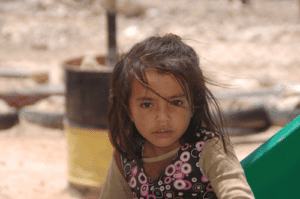
By Jim Baton
It’s beginning to look a lot like Christmas—bombs, angry mobs, church invasions.
Welcome to Indonesia.
Indonesia is the world’s largest Muslim nation. Its constitution supports pluralism and commits the nation to protecting the rights of minority religions, including Christianity; but the Christmas season frequently becomes a platform for a small number of extremists to express their opposition to Christians.
On Christmas Eve, 2000, 36 bombs targeting 11 churches in the capital city of Jakarta and several other cities left 19 dead and 120 injured. Many of these attacks occurred during worship services. Since then, Indonesian Christians have always become extra cautious about celebrating Christmas.
This Christmas has been no different:
December 6: A Christmas service in Bandung was interrupted by a Muslim extremist group who shouted for the attendees, including a children’s choir, to stop singing and leave the premises. The extremists demanded the Christmas service be held in a church, not in a public facility for which they had no permit. The intimidated worshippers canceled the service and dispersed. Later, Bandung’s mayor publically affirmed the right of any religious group to rent any public facility, and said they did not need a special permit for a religious service.
December 18: Christmas shoppers at seven different malls in Surabaya had to carefully navigate around mobs of a Muslim extremist group, who had come to enforce a recent fatwa from the Indonesian Ulema Council (MUI) forbidding Muslims from greeting Christians on Christmas, or wearing, giving, producing, buying or selling Christmas accessories, and forbidding businesses from requiring their Muslim employees to do so. Many shops in the mall have their employees wearing Santa caps and selling Christmas decorations, which some argue are not necessarily Christian religious symbols. Surprisingly, the Surabaya police assisted the extremists, adding another layer of intimidation to the shop owners who had no choice but to submit to a fatwa that has never been discussed by the government or made into law.
December 21: Five bombs armed and ready for Christmas targets were discovered when Special Forces captured one terrorist and killed three others in Tangerang, just an hour west of the capital. The bombs, which were made by the attackers, were meant to be detonated in a suicide bombing. Indonesian police stated that “homegrown militants” such as these extremists are getting “bolder” in their attempted attacks.
These three situations—Christmas service raids, mob intimidation in public places, and bomb attacks—are common scenarios Christians have to deal with year after year in Indonesia. While many leaders of influential Muslim organizations (such as the Nahdlatul Ulama, Indonesia’s largest Muslim organization, and the Ikatan Cendekiawan Muslim Indonesia) support the rights of religious minorities like Christians, and have criticized such fatwas and extremist activities, there is a growing swell of discontent among the majority masses.
These three situations—Christmas service raids, mob intimidation in public places, and bomb attacks—are common scenarios Christians have to deal with year after year in Indonesia.
Is what we’re seeing in American politics, with the rise of an unhappy white majority, indicative of a global trend? Various movements in Europe, including Brexit, display similar attributes. Will Muslim-majority nations follow this trend of pursuing empowerment of the unhappy majority, possibly at the expense of minorities such as Christians?
The angels’ announcement on that first Christmas Day declared God’s desire for peace on earth. How ironic that in places such as Indonesia, Christmas has become a lightning rod for division and oppression.
Jim Baton and his family have spent the last 20 years building bridges between Christians and Muslims in Indonesia. In his newest novel, A Way out of Hell, a Muslim ex-terrorist and his Christian adopted daughter try to non-violently take down an ISIS cell bent on destroying their city. Learn more about Jim at his website.
Related reading by the same author: 1001 Ways to Die in America


